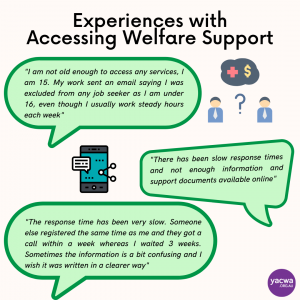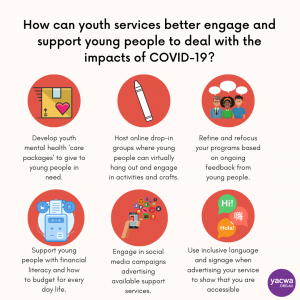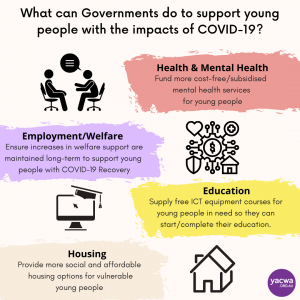We have received a strong response from the survey, with 345 young people from all over the state and across different cohort groups providing us with feedback. Participants canvassed a range of issues affected by COVID-19 such as health/mental health, employment, education, access to information welfare support. Key results include:
- The loss of social interaction is a primary concern for a majority of young people. They revealed significantly increased mental health issues as a result.
- Young people are disproportionately affected by the significant amount of COVID-19 related job losses and many have had difficulties in engaging with Centrelink.
- Shifts in education due to COVID-19 have been extremely difficult for many young people, with inconsistencies in social distancing for some and insufficient support to transition to online learning for others impacting on their educational experience.
The survey results have demonstrated what we already knew that COVID-19 has been incredibly detrimental to the mental health of many young people in Western Australia. 88% of respondents in the survey stated that COVID-19 has had a significant impact on their mental health and wellbeing. In particular social restrictions and reduced access to education, employment and youth services are taking a significant toll. Maybe respondents in the survey have called for increased funding the State and Federal Governments for a more diverse and far reaching range of mental health supports targeted towards young people, including:
- More subsidised counselling sessions as part of the mental health care plan.
- Expanding telehealth and providing ICT equipment so that mental health support is more accessible in regional and remote areas.
- Enhancing supports targeting particular vulnerable cohorts of young people e.g. LGBTQIA+














View document (1.33 MB)




